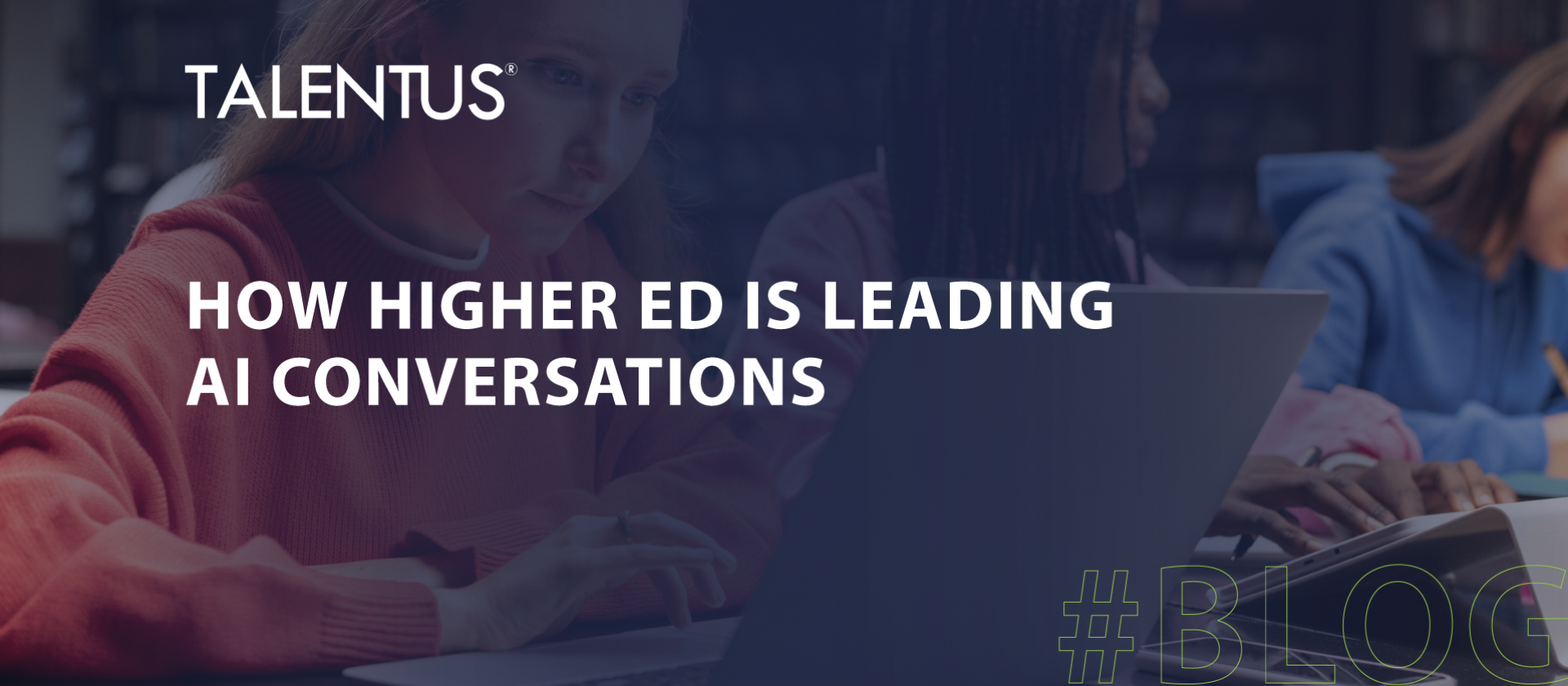How Higher Ed Is Leading AI Conversations – As artificial intelligence continues to reshape industries, colleges and universities are emerging as key players, not just in deploying the tech, but in leading thoughtful, ethical conversations around its use.
From classrooms to research labs, admissions offices to campus security, AI is already embedded in higher ed. What sets academia apart, however, is its ability to critically examine the impact of AI while actively using it. This dual role positions institutions to act as both innovators and ethical stewards.
Why Higher Ed Is Uniquely Suited to Tackle AI Ethics
AI is nothing new on campus. Many institutions were early adopters, integrating AI into curriculum, research, and operations. This broad adoption provides fertile ground for ethical exploration.
Take Miami University in Ohio, where students not only study AI, but they study with it. “There are courses about AI, and there are courses that use AI,” says David Seidl, Vice President for IT Services and CIO. As adoption expands, universities are tasked with equipping students with both technical fluency and an ethical compass.
Universities also have a unique advantage: expertise. “We have people who are very thoughtful, who bring subject matter expertise from a lot of lenses,” says Tom Andriola, Vice Chancellor for IT and Data at the University of California, Irvine. This multidisciplinary foundation allows higher ed to lead nuanced, informed discussions on AI’s ethical implications.
Core Ethical Concerns in Academic AI Use
One of the biggest challenges? Access and equity
Vince Kellen, CIO at UC San Diego, points out the growing gap between those who can critically engage with AI and those who can’t. “Those who exert critical reasoning in using AI get a bigger benefit,” he says. “Those who do not get a lesser benefit.” For institutions built on democratizing knowledge, that’s a significant concern.
Then there’s accuracy—or lack thereof. “You can ask AI how to keep cheese on pizza, and it might suggest glue,” Seidl quips. That’s a joke, but the ethical issue is real: What happens when users accept flawed AI responses at face value?
Privacy also looms large. “Folks don’t yet fully understand what happens when they input their data into an institutionally supported or a non-institutionally supported AI application,” says Michael Butcher, Assistant VP for Student Affairs at the College of Coastal Georgia. With academic data covering everything from personal information to proprietary research, institutions must tread carefully.
Bias is another minefield. Ask AI to generate a photo of a nurse and you’ll likely get a woman, reflecting societal stereotypes baked into training data. “What are we inadvertently doing by having AI continue to perpetuate those things?” Seidl asks.
And of course, academic integrity is a moving target. Where does helpful AI support stop and unethical reliance begin? “We need to define where legitimate academic assistance ends and where unethical dependence begins,” Butcher says.

IT’s Pivotal Role in Ethical AI Development
Tech leadership has never been more important. CIOs and IT departments aren’t just managing systems—they’re helping set the moral compass for AI on campus.
“I am a convener of a lot of conversations, including about AI ethics,” Andriola says. At UC Irvine, that means hosting workshops and discussions that explore AI’s ripple effects on teaching, research, and institutional responsibility.
At UC San Diego, Kellen’s team is building TritonGPT, a campus-specific AI tool trained on university data. “When we prioritize our content to the large language model, the bias now gets shifted to the bias in our own documents, which we can control. That’s a good thing,” he says.
Seidl adds that IT teams can also decide which tools are allowed on campus. “Whenever Google brings out a new capability, we ask: Should we turn it on? Does it have a risk? Do we need to do a pilot or a beta to understand it well?”
In this way, IT departments act as both gatekeepers and guides, helping faculty, staff, and students use AI responsibly without stifling innovation.
Previous blog: How AI Is Redefining the Future of Cybersecurity
In Conclusion
AI isn’t going away. If anything, its influence in higher education will only grow. But by leaning into their intellectual capital and multidisciplinary frameworks, colleges and universities can lead the way in setting ethical standards, not just for academia, but for the broader AI-powered world.
The opportunity is clear: higher education can—and should—be a testing ground for responsible AI development. The stakes are high, but so is the potential for positive impact.
Find all our tech blogs here
We are Talentus: a global company that provides US companies with reliable IT services, near-shore talent, and support up to their necessities.
